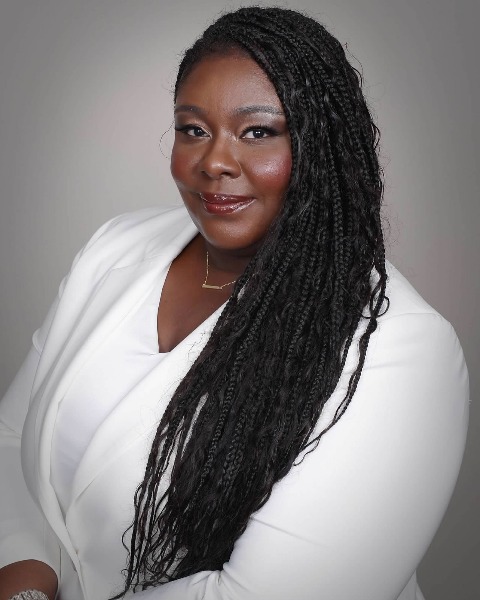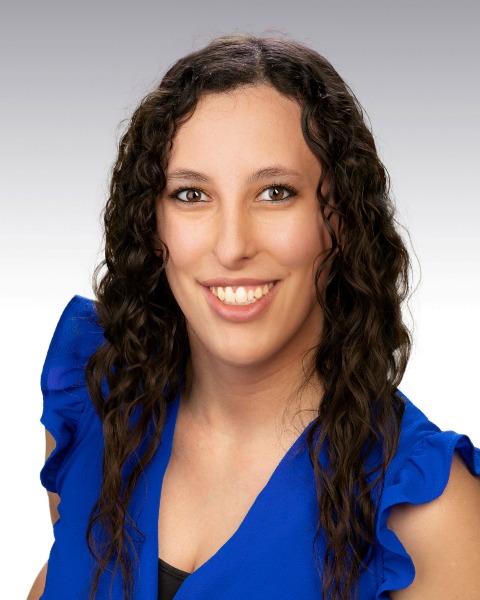The path to success as a healthcare management leader can be an especially challenging endeavor for those just starting their careers. But MGMA has developed a new, informal working group designed to help provide advice and support for up-and-coming leaders.
Host Daniel Williams talks with the founders of MGMA’s Early Careerist Resource Group in this episode of the MGMA Member Spotlight podcast. He speaks with Agnes Edukere, MHA, director of performance improvement and project facilitation with California’s Melody Health, Melinda Mastel, MBA, MS, FHFMA, CMPE, PMP, a senior financial advisor at the Medical College of Wisconsin, and Tori Cordova, BS-HCM, CPPM, CPC, COC, CHONC, senior manager of practice administration at Colorado’s Banner MD Anderson Cancer Center.
The Early Careerist Group provides networking, peer-to-peer support and a supportive environment for those aged 35 and under in the first stages of their administrative and managerial careers. For those needing help navigating real-world challenges in a new role, it’s an ideal place to connect. This group is one of the individualized MGMA Resource Groups offering inclusive networking opportunities.
Practical Assistance for Recent Graduates
Mastel says the Early Careerist Group was established to assist those who are just graduating from college or graduate school, and are transitioning into their first leadership role.
“The idea is to invite collaborative, peer-led discussions on topics that are relevant to, in our case, those early in their careers,” she says. “It’s really just to share insights, practical tips, ideas, our stories and experiences, and to get some good conversation going around those. There’s no need to be an expert, or to come with all the answers.”
As Mastel explains, the group is designed to provide a sense of connection and a welcoming space outside of participants’ workplaces, where they can share and contribute, as well as provide different perspectives and views on day-to-day successes.
Some Career Advice We Would Have Appreciated
What kind of advice would the three women have given to a younger version of themselves as they were just starting in healthcare? As they explain, these are the sort of insights a peer-level career development group can help provide.
would the three women have given to a younger version of themselves as they were just starting in healthcare? As they explain, these are the sort of insights a peer-level career development group can help provide.
“I would tell myself not to rush the process,” Cordova says. “There’s no correct way to always do things, and I think that was a difficult lesson to learn. If I had just known that from the start, I might have saved myself a lot of headache. Just trust the process – you don’t need to have everything figured out right away. Always be willing to learn.”
Mastel adds, “Define success for yourself, because it looks different for everyone. Don’t be afraid to create your own path. Be yourself, own your strengths, and how that makes you your own leader and gives you unique value. I think that’s a big confidence builder.”
Edukere responds, “I would tell my younger self that failure is necessary for success. I’m used to just doing things right the first time, so I struggled when I didn’t get that buy-in from my team, or a process that I put into place didn’t work. Honestly, you have to fail forward. Learn, adapt, be agile – it’ll help you become a better leader.”
Transitioning into a Complex Leadership Role
Edukere says recent discussions among group members have focused on the challenges of balancing American healthcare as both a business and a service. This means coping with the administrative burdens and the organizational mission of their employers while navigating the various tasks they need to accomplish.
“We all aspire as a career in healthcare to make impacts, and the reality is health is still a business,” she says. “So many professionals are trying to keep up with the innovation that’s happening and leading their teams to that change, and the regulatory compliance. Some of our members are also dealing with being accountable and responsible for things for the first time in their new role.”
How the Group Conversations Work
As Cordova explains, each Early Careerist Group meeting begins with a presentation based on suggestions made by group members, including the use of AI in healthcare.
“We look for feedback and open dialog and discussion from the group,” she says. “Sometimes it can be a little quiet at first, but what we’re here for is to support these other careerists, so feel free to ask questions at any point throughout the presentation. It’s not super formal, it’s just there as a tool to help guide the conversation.”
Mastel says other group discussions have hit on the challenges of transitioning to leadership from an individual contributor role, establishing your leadership presence and navigating multigenerational workforces.
“We all have experience in that realm, so we’ve handled questions on how to stand out in the fields and how to differentiate yourself early on,” she says. “We also cover things like goal setting. Or, as a practical topic, what does emotionally intelligent leadership look like?”
Learning and Working in a Small Group Environment
Edukere says participants have also been particularly interested in relationship building and networking, and future sessions will offer real-time workshopping on common concerns with feedback and brainstorming from their peer-level colleagues.
“Being part of this group gives you that small group dialogue, to help foster connections and growth with other professionals in your field. Sometimes you may feel a little uneasy talking to others, so having that small group discussion with others like you is really helpful.”
Mastel says the Early Careerists Group also provides a low-pressure environment to help build relationships that can continue outside of the meetings.
“Come and try a session, and give us your feedback,” she says. “Let us know if there’s something you’d like to learn more about, because we’re happy to help facilitate a discussion around that. We’re here to make this valuable and impactful for you.”
Join Melinda, Agnes and Tori at the 2025 Leaders Conference where they will host the Resource Group for Early Careerists on Sunday, September 28th at 3:00 p.m.
Resources:
- 2025 MGMA Leaders Conference - Register Here
- MGMA for Early Careerists
- MGMA Early Careerist Membership
- MGMA Resource Group: Early Careerist Healthcare Leaders
Additional Resources:
Email us at dwilliams@mgma.com if you would like to appear on an episode. If you have a question about your practice that you would like us to answer, send an email to advisor@mgma.com. Don't forget to subscribe to our network wherever you get your podcasts.


































